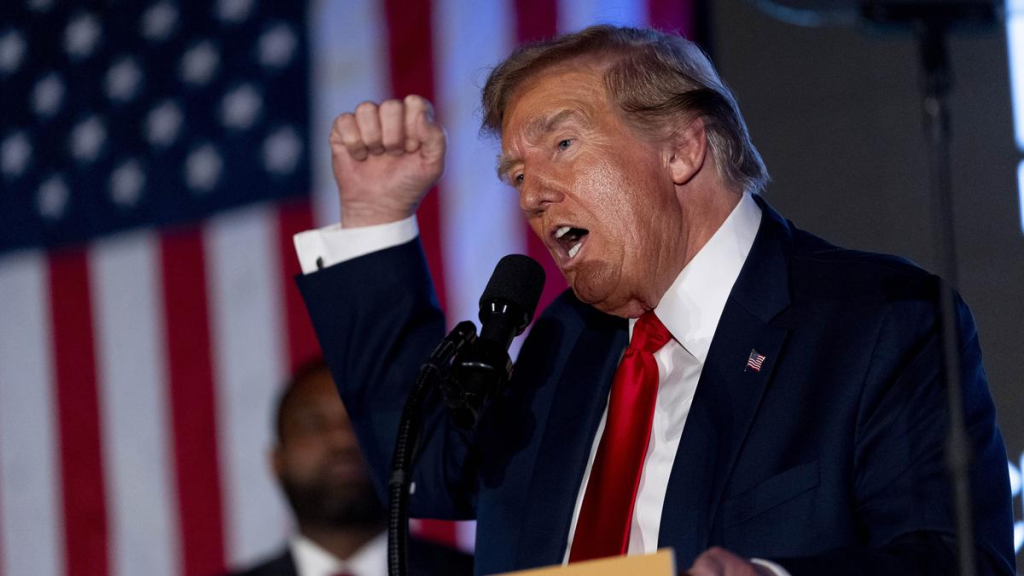America’s travel industry is feeling the chill of a so-called “Trump Slump,” as data shows a noticeable drop in visits from European tourists. What’s behind the pullback? Many travelers from across the Atlantic are citing political unrest, safety concerns, and the perception that the U.S. is no longer a welcoming destination.
According to a recent report from the U.S. International Trade Administration, overseas visits to the U.S. fell by 12% in March 2025 compared to the same month last year. The decline is especially noticeable among European travelers, with visits from the United Kingdom dropping by 14%, Ireland by 27%, and Denmark by a staggering 34%.
This isn’t just a seasonal slump—it’s shaping up to be a sustained decline tied to global perceptions of the United States during Donald Trump’s return to the political spotlight.
Politics, Policies, and Perceptions
Experts and tourism officials say the dip in visitors can be traced directly to the current political climate. Since Trump began his campaign to return to the White House, several countries have issued updated travel advisories to citizens visiting the U.S.
Canada, for instance, updated its travel warning to highlight the risk of electronic device searches and secondary screening at border crossings. Several European nations have echoed those concerns, warning citizens to be cautious due to visa complications, increased immigration enforcement, and policies targeting LGBTQ+ individuals.
“There’s no question travelers are taking politics into account,” said Adam Sacks, president of Tourism Economics. “There’s a growing perception that the U.S. is less safe or less friendly than before.”
Tourism Economics originally predicted a 9% rise in international visitors to the U.S. in 2025—but has since revised that forecast to a 9.4% decline. That’s a difference of nearly $9 billion in lost spending, affecting everything from hotels and restaurants to airlines and travel agencies.
Cancellation Rates Climb
Travel companies are already seeing the consequences.
Omio, a major European travel platform, reported cancellation rates for U.S.-bound trips are 16% higher than last year. That number jumps to over 40% when isolating travelers from countries like the U.K., Germany, and France.
“We’re hearing from clients who just don’t feel safe or welcome traveling to the States right now,” said a spokesperson from a large Paris-based travel agency. “They’re opting for Canada, Japan, or destinations in the Mediterranean instead.”
Air Canada recently cut back its U.S. routes for the spring season due to low demand. Similarly, French hotel group Accor said bookings from European guests headed to the U.S. are down 25% this year.

Voices From Europe
Some tourists are sharing why they’re rethinking travel to the United States.
David Pereira, a 38-year-old businessman from France, had planned to take his family on a summer vacation to New York and Florida. He canceled the trip after seeing stories in French media about travelers facing heightened security scrutiny and anti-immigrant sentiment.
“It’s like we’ve been punched in the face,” Pereira told French outlet Le Parisien. “I’ve been to the U.S. three times. This time, it just feels wrong.”
British author Farah Mendlesohn said they’re skipping the U.S. this year for similar reasons. “I don’t want to spend my money somewhere that doesn’t respect me or my community,” Mendlesohn said in an interview. You can read their full comments on AS.com.
A Broader Industry Concern
Beyond tourism, the travel slowdown raises larger questions about how the United States is viewed on the world stage. In 2017, the term “Trump Slump” was coined after a similar dip in foreign tourism. While that decline eventually corrected, experts say the current climate may have longer-lasting effects.
“Travelers are savvy,” said Andrea Leavitt, a hospitality analyst. “They read the news. They know when a country’s culture is shifting, and they make decisions based on whether they feel welcome.”
U.S. tourism boards are now scrambling to repair the image. Cities like New York, Los Angeles, and Chicago have launched targeted ad campaigns in Europe to promote themselves as inclusive and diverse, distancing themselves from federal politics.
But whether those campaigns can reverse the downward trend remains to be seen.
Can the Slump Be Reversed?
With an election looming and political tensions high, some industry insiders are cautiously optimistic that international travel might rebound in late 2025 or 2026—if conditions improve.
In the meantime, tourism-dependent businesses are bracing for a tough summer. “We count on European travelers in the warmer months,” said a hotel manager in Orlando. “If they don’t come, it’s going to be a big problem.”
Until then, the “Trump Slump” remains more than a buzzword—it’s a real economic force with ripple effects across the country.
For more data and coverage, visit the U.S. Travel Association’s official report.
Disclaimer – Our team has carefully fact-checked this article to make sure it’s accurate and free from any misinformation. We’re dedicated to keeping our content honest and reliable for our readers.
